An Intentionally Slow Start to the New Year
How is the beginning of your year going, or not going?
Many of us expect January to be the month that we feel motivated and eager to hit the ground running, tackling those New Year’s resolutions. But what if we don’t feel motivated? What if setting grand plans for the year ahead isn’t for us, or it doesn’t feel good to do immediately in January?
I like to ease into the New Year and have an intentionally slow start. My nervous system does not approve of a sprint on January 1 or 31, or ever, really. That doesn’t mean I’m not working. I am. And I especially like to use the quiet, slower end of the year and beginning of the next to reflect, re-center, and set intentions and priorities for the coming months. But I’m mindful of the emotional energy I bring to my work and the expectations and standards I’m holding. And I try to allow time and space to gradually gain momentum and build back up rather than expecting to hit my stride right out of the gate.
But if we have a slow start or feel less than motivated in the New Year, does it mean we throw away our one chance to feel focused, motivated, accomplished, healthy, and happy for the next 12 months?
I don’t believe so. And both science on behavior change and the wisdom of nature back me up on this one.
If you too feel like you’re not fully up to speed at this point in the year, or you feel guilty for feeling this way (!), I’d like to offer you some reassurance that you may be doing more to support yourself than you realize.
What the Science on Behavior Change Says
When I’m brainstorming or contemplating next steps on a project or in a life transition and I begin to feel anxious that I’m not “doing” enough or I’m not seeing the change I want or things aren’t happening quickly enough, I try to remember this behavior change model that I often share with my clients.
Image by Boston University School of Public Health
It reminds us that the process of taking steps forward and changing behavior don’t always feel like progress. A lot of the progress is the internal mental preparation. As the model shows, there’s a time when we don’t want, or think we need, to change anything (pre-contemplation), a time when we’re considering the pros and cons of changing, a point at which we are ready and determined to act, and a time when we take action. There’s even a time for back sliding. Yep. It’s all a natural part of the process because remember, progress is anything but linear and really can feel like we’re going in circles.
The Wisdom of Nature
There are times when I feel discouraged, uninspired, and sluggish – and yes, sometimes this happens in January….and on Mondays. That’s when I look to nature’s seasonal rhythms for perspective. I can trust that my feeling low and slow has a place in the cadence of my days when I see in nature (specifically winter) this same low energy exists, serves a purpose even, and doesn’t last forever.
“Give yourself permission to be in your winter.”
As humans with a history of evolution, we are a part of nature. And nature’s patterns can be a comforting reminder that we’re doing nothing wrong when we experience the emotional and energetic roller coaster in a day, a week, a month, a year, and through life’s transitions.
The seasonal changes in nature show us that there’s a time for withdrawing, a time for growing, expanding, producing, and fully expressing, and a time for reflecting, shedding, and slowing down again. And as we see year after year, those times of shedding and withdrawing support new life and new energy come spring and summer. But when I find myself pushing too hard in the middle of winter, I feel resistance and incongruency. So I’ve learned to slow down and work with the natural energy of the season, rather than against it.
So if you need some extra cozy and slow and TLC at the beginning of this new year, give yourself the permission to be in your winter. And know that by allowing a season of being - not doing - you’re resourcing yourself. The space you’re giving yourself will build up your energy reserves. It will also provide perspective so that when you are ready to “do”, you can be more intentional and deliberate in your response, rather than fall back into the habitual or impulsive reactive mode.
I will leave you with a set of questions to support you through your winter season, however many of them may come in a year.
Can I allow myself to be exactly where I am?
Can I trust the timing and my process?



